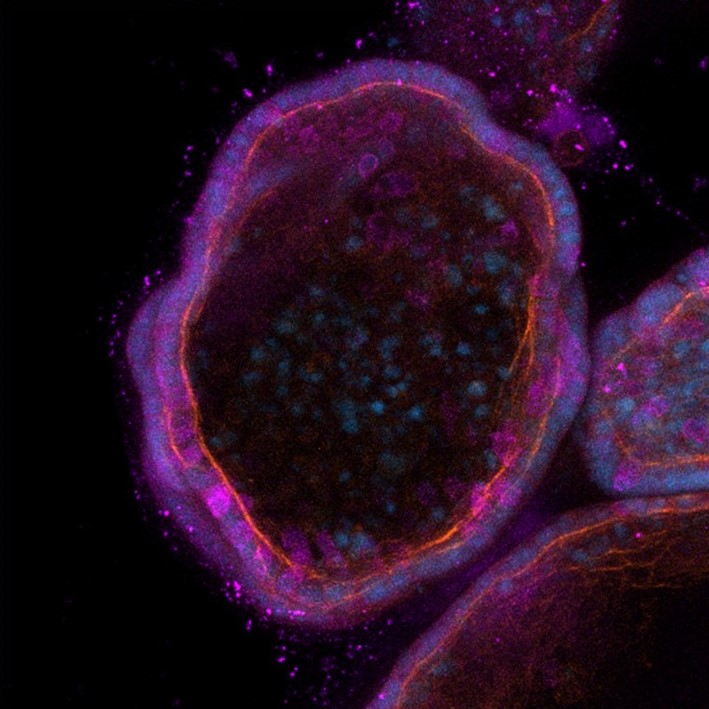Organoids
Organoids are miniaturized, three-dimensional structures grown from stem cells that mimic the complexity and function of real organs. They are used in research to study disease, drug responses and organ development in a controlled laboratory environment.
Organoids
Organoids are miniaturized, three-dimensional structures grown from stem cells that mimic the complexity and function of real organs. They are used in research to study disease, drug responses and organ development in a controlled laboratory environment.

Organoids
Several labs in our Institute derive organoid cultures from different organs and tissues including lung, intestine and various cancers. The technology of organ-on-chip, based on microfluidics, is also applied. Organoids represent a breakthrough for biomedical research. They are self-organizing complex culture systems that closely resemble organs. All organoids are generated from stem cells and for this reason the analysis of organoid formation can provide valuable information about the mechanisms underlying organ development and organ regeneration. Their relevance is also widely recognized in pharmaceutical drug testing and to investigate the mechanisms of diseases at molecular level.
